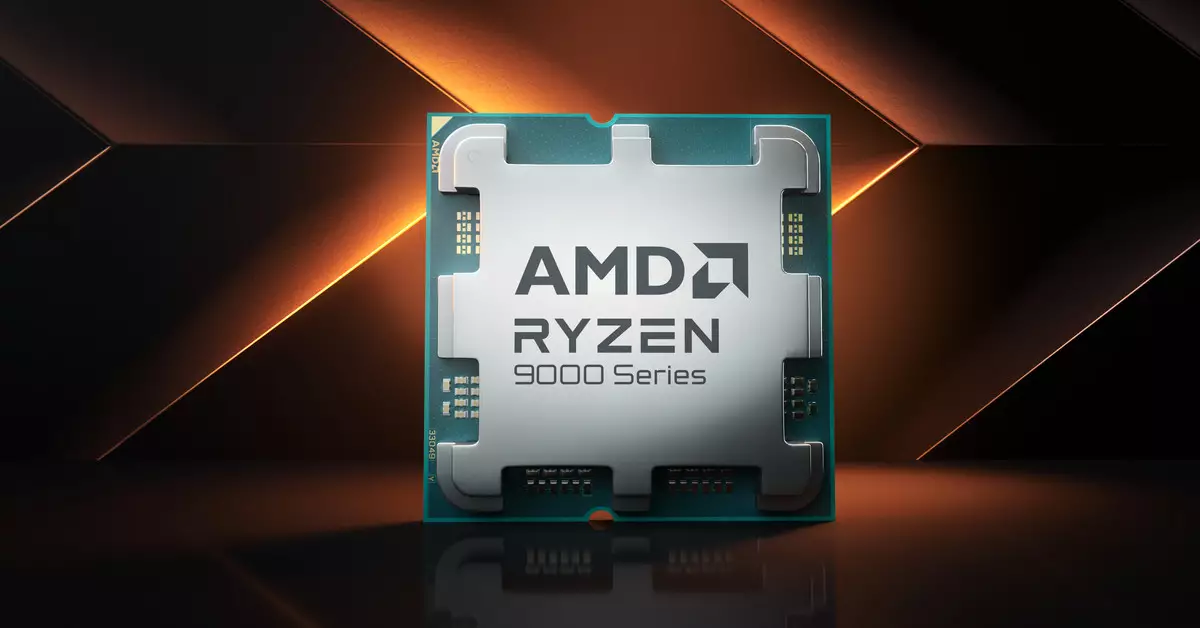AMD has once again made its mark in the processor landscape with the inadvertent unveiling of its upcoming Ryzen 9000X3D desktop processors. This news, which surfaced during an MSI presentation, raises significant questions about AMD’s direction in a competitive market already saturated with alternative offerings. While the unintentional reveal of these chips may create a buzz, the performance metrics released so far indicate that users might not be seeing the substantial upgrades they were hoping for.
According to the information leaked by HardwareLuxx, the Ryzen 9000X3D series may show some potential for multicore performance enhancements over the previous generation. Reviewers were particularly impressed by an eight-core model, which reportedly exceeded the performance of the Ryzen 7 7900X3D by up to 28% in Cinebench R23, a respected benchmark for evaluating CPU capabilities. This may sound encouraging, but the reality becomes more somber when considering gaming performance. Preliminary tests indicate marginal gains of just 2% when running popular titles such as Black Myth: Wukong and Shadow of the Tomb Raider.
Furthermore, when compared to the standard Ryzen 9000 series, the performance of the X3D chips appears almost identical. Such minimal differences are likely to leave consumers unimpressed, especially those who were anticipating groundbreaking enhancements that would justify an upgrade from previous models.
The underwhelming upgrades presented by the Ryzen 9000X3D could severely affect AMD’s standing in the highly competitive CPU market. Given that AMD faced criticism with the original Ryzen 9000 series, this disappointing trajectory raises alarms about their innovation pipeline. If AMD fails to provide compelling improvements while competitors like Intel continue to innovate, the brand risks losing its foothold among tech enthusiasts and casual users alike.
This stagnation in performance enhancements is further compounded by the perception that the company is struggling to adapt to rapid technological advancements. If the only notable improvements come in multicore processing—with little to no gains in real-world gaming performance—then AMD may not resonate with its core audience, which primarily consists of gamers and content creators.
The source of the leak remains an enigma. It is unclear whether HardwareLuxx inadvertently broke an embargo, or if MSI, who organized the presentation, is to blame for the premature disclosure of AMD’s plans. Interestingly, the presentation was predominantly focused on Intel’s new Core Ultra 200S chips, leaving one to wonder how the Ryzen 9000X3D fitted into that narrative. Such perplexity around the context of the leak raises concerns about the organization and communication within the industry.
As AMD navigates this turbulent landscape filled with competitive pressures and consumer expectations, the Ryzen 9000X3D processors may ultimately reveal more than mere numbers. They reflect the company’s ability to innovate, adapt, and meet the needs of its users in the face of intense competition. If AMD wishes to sustain its reputation as a pioneering force in computing, it must urgently address the limitations presented by its new processors and reinvigorate its approach. Without a dramatic shift, the Ryzen 9000X3D may well be remembered as a missed opportunity rather than a triumph.


Leave a Reply